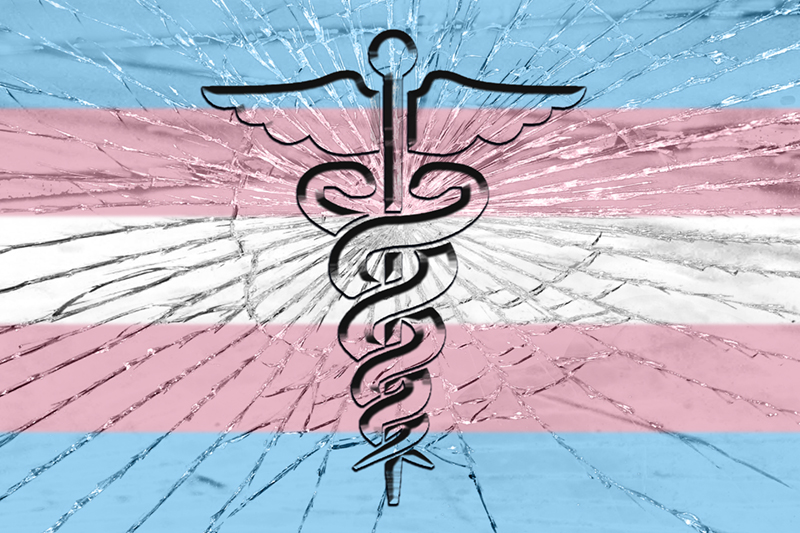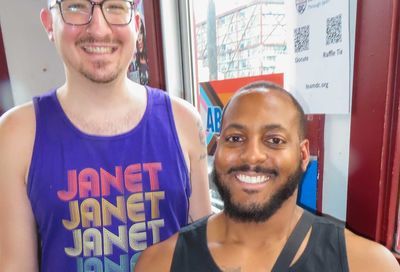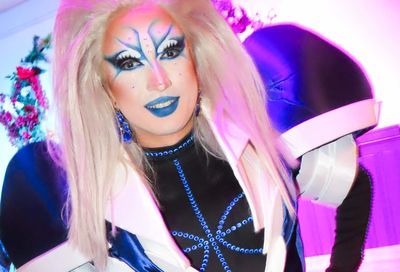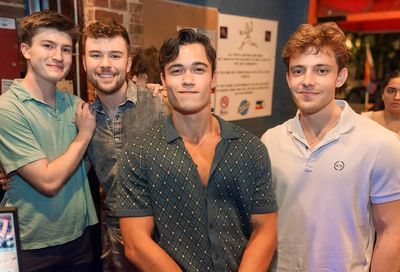Lending an Ear
''Listen'' event mines young gay men's experiences around HIV
In the District, people talk about HIV/AIDS — a lot. Of course, with a statistical profile that puts D.C. on par with sub-Saharan Africa when it comes to people with AIDS and HIV-infection rates, there’s plenty of reason to talk.
With males ages 13 to 24 who have sex with other males, infection rates appear to be rising drastically. But rather than talk, The Center, D.C.’s GLBT community center, and other groups asked the community to come together to listen at ”Listen: Gay Men in Their Twenties Talk About Their Lives, Their Futures, and the HIV/AIDS Epidemic in DC.” Of course, you can’t keep a good discourse down, and there was easily as much talking as listening.
About 50 people gathered in the Human Rights Campaign Equality Forum, 1640 Rhode Island Ave. NW, Thursday, Dec. 4, to take part. Facing the audience were four young men: Daniel O’Neill, who is working on HIV issues with The Center’s acting executive director, David Mariner, but is otherwise unaffiliated; Jose Ramirez, of La Clinica del Pueblo; Christopher Barnhill, of Metro TeenAIDS; and Justin B. Smith, who maintains a video blog — or ”vlog” — on YouTube about his experiences as an HIV-positive young man.
Ramirez’s tone was indicative of the mood at the Thursday meeting, which began with pizza, smiles and mingling, but which quickly moved into more serious territory.
”I was having unsafe sex and loving it,” said Ramirez, who now works to educate local Latino youth about HIV. ”I became positive. A lot of Latino youth don’t think it’s going to happen to them.”
Barnhill, Smith and Ramirez all said they’ve dealt with peers who engage in unprotected sex.
”I’d tell them, ‘Sounds like fun, but I can’t do it,”’ Ramirez answered, when asked how he deals with young people who avoid condoms. ”I feel you. I understand it feels good without a condom.”
With the back and forth between the four panelists and the audience, and Zack Rosen of the Web site The New Gay serving as moderator, attendees listened not only to stories of young men and HIV, but a number of issues ranging from spirituality and sex to a perceived racism at the Human Rights Campaign — immediately challenged — to whether it’s sometimes acceptable to ”out” someone regarding his HIV status.
Through it all, however, it seemed there were two key issues that rose above the rest: How can young gay men’s access to condoms be improved and, more importantly, how do you get them to use them? While those may be straightforward questions, there were no straightforward answers.
”It seems like the over-arching theme is risk reduction,” O’Neill said near the end of the two-hour panel. ”The whole gestalt of different tacks you can take should be presented as a package.”
He pointed to ”safe-sex kits” as part of that package, something he saw as readily available at gay venues in Manchester, England, where he’d spent a year, prior to landing in Washington about two years ago. Those kits, with condoms and lubricant, are not something he’s found in D.C. bars. Barnhill and Smith, however, countered that claim, saying that they had handed out exactly such kits in past years. Mariner interjected at that point to say that in his immediate neighborhood, near Scott Circle NW, he does not see condoms as available as they may have once been.
”In my neighborhood, where my friends are getting HIV, those resources don’t exist,” Mariner said. ”What I’m saying is I’m frustrated.”
Brian Watson, director of programs at Transgender Health Empowerment and president of the D.C. Coalition of Black Lesbian, Gay, Bisexual and Transgender Men and Women, added that he hasn’t seen the same availability of free condoms that he did when he moved to D.C. about five years ago. But, he added, ”If you don’t feel your life is worth protecting, you won’t put a condom on.”
Michael Sessa, president of The Center and the first to throw out the phrase ”barebacking,” meaning unprotected intercourse, last Thursday, said he hoped attendees would build on the dialogue.
”Building bridges, collaboration, is probably the No. 1 problem in D.C. Nobody likes to do it,” he told the audience. ”When you leave here, take on the burden to improve D.C. For whatever reason you came out tonight, take it to the next level. It’s going to take all of us working together to make a dent [in HIV/AIDS] in D.C.”
Though defining what those next steps might be is as big a challenge as any mentioned at ”Listen,” Watson issued something definitive: an invitation to join the city’s Ryan White Planning Council, on which he serves. The council helps decide how to use resources in fighting HIV locally.
”You can come to that group and bring your ideas,” Watson urged. ”They really do want younger people there. Your knowledge is needed and will be appreciated. … Honestly, think about what you can give back.”
In the meantime, Michael Kharfen, who runs condom distribution for the D.C. Department of Health’s HIV/AIDS Administration, was on hand to confirm that the District has 3 million condoms ready for takers.
The Sexual Minority Youth Assistance League and The Center’s DC Crystal Meth Working Group also sponsored ”Listen: Gay Men in Their Twenties Talk About Their Lives, Their Futures, and the HIV/AIDS Epidemic in DC.” For more information, visit www.thedccenter.org. For more about the Ryan White Planning Council, e-mail RWPC@dc.gov.
Support Metro Weekly’s Journalism
These are challenging times for news organizations. And yet it’s crucial we stay active and provide vital resources and information to both our local readers and the world. So won’t you please take a moment and consider supporting Metro Weekly with a membership? For as little as $5 a month, you can help ensure Metro Weekly magazine and MetroWeekly.com remain free, viable resources as we provide the best, most diverse, culturally-resonant LGBTQ coverage in both the D.C. region and around the world. Memberships come with exclusive perks and discounts, your own personal digital delivery of each week’s magazine (and an archive), access to our Member's Lounge when it launches this fall, and exclusive members-only items like Metro Weekly Membership Mugs and Tote Bags! Check out all our membership levels here and please join us today!





















